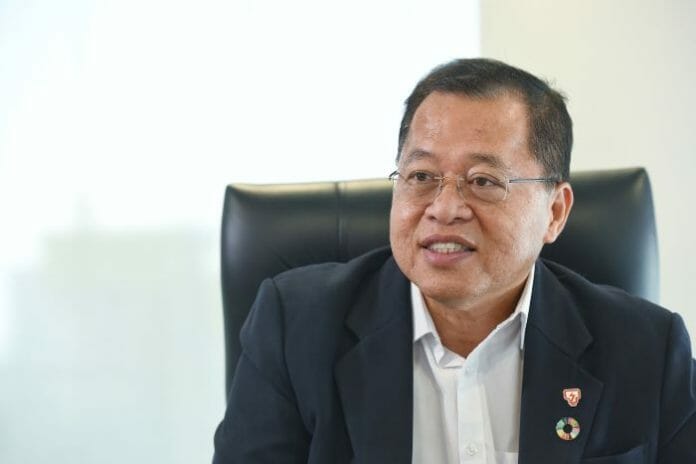TNB is gearing itself to become a prominent energy player both in Malaysia and the region with its strategic roadmap in place toward securing the nation’s energy needs and towards a more sustainability drive.
Among them are TNB Power Generation Sdn Bhd (TNB Genco) which has committed to several expansion plans from 2023 including the ongoing construction of the Nenggiri Hydro Project scheduled for commercial operation in 2027, the finalisation of a new Power Purchase Agreement for the Sungai Perak Life Extension Program, the model planning for the Paka Repowering project, and the finalisation of a partnership collaboration for the new 2,100 MW Combined Cycle Gas Turbine in Kapar. In addition, TNB Genco and its subsidiary, TNB Remaco Sdn Bhd have submitted an Expression of Interest in LNG to Power projects in Vietnam and signed a Memorandum of Understanding with North Power Service Joint Stock Company (EVNNPS) for future collaboration on potential energy-related services in Vietnam.
“Our wholly-owned subsidiaries in the United Kingdom, Vantage RE Ltd has acquired a 97.3MW onshore wind portfolio and a 102MW Ready-to-Build solar portfolio in the UK with an added option to develop a 65MW Battery Energy Storage System, with commercial operation expected in Q2 2024. The company aims to expand its portfolio with greenfield assets in various technologies and locations across Europe. Meanwhile, our TNB Bukit Selambau Solar Dua Sdn Bhd (TBSS2) secured up to RM185 million in financing for its third LSS project under the government’s LSS4 program’ said CEO Datuk Baharin Din.
The Energy Vector’s push for 2023 will be through the Grid Division in which TNB is currently discussing with the relevant authorities both in Malaysia and Singapore to form a joint committee to study the feasibility of a second link between Peninsular Malaysia to Singapore.
Similarly for the Sumatera to Peninsular Malaysia and Sabah to Kalimantan interconnections, TNB is engaging Perusahaan Listrik Negara (PLN) of Indonesia in formalising a Memorandum of Understanding to revive the feasibility study for the identified interconnections.
On the interconnection with Thailand, Baharin said TNB and the Electricity Generating Authority of Thailand (EGAT) are already in the midst of collaborating through a Joint Working Committee in conducting a feasibility study to increase the capacity of the Malaysia-Thailand interconnection.
“On Energy Usage, TNB GSPARX Sdn Bhd (GSPARX) will provide an extra push on RE penetration while growing TNB’s revenue source. GSPARX aims to secure an additional solar generation capacity of approximately 145-megawatt peak (MWp) for 2023. With 1,926 rooftop solar projects secured with a total of 272 MWp capacity, GSPARX is expected to generate RM70 million in revenue this year.
“Currently, TNB has activated six TNB Electron EV charge points at selected Rest and Service Areas (R&Rs) along the North-South Expressway and East Coast Expressway Phase 2 with three more in the pipeline by the end of 2023.”
Baharin said 2023 continues to be another exciting year in the Group’s pursuit of Net Zero 2050 aspirations. TNB has received increasing requests for high voltage supply mainly by manufacturing companies and hyperscale Data Centres (DC) with a potential maximum demand of 4,300 megawatts (MW).
“These include DC investments from major international companies with a maximum demand of 760 MW mainly in Selangor and Johor. To cater to DC demands, TNB has set up a One-Stop Centre (OSC) for a business-friendly and seamless process.
“TNB sees this as both demand growth and potential business opportunities that will have a multiplier effect on the economy, encouraging Foreign Direct Investments (FDIs) of USD43 billion by 2035 and renewable energy (RE) investments in Malaysia.”
Regionally, Baharin said TNB has stepped up its responsible ET agenda through collaboration with major power players in Thailand, Vietnam, and Laos to capitalise on serving regional demand with greener power.
“Beyond new revenue streams from renewables, these collaborations allow for a wider integration and reallocation of RE resources that will help decarbonise the ASEAN power system as well as ensure greater energy security for the region.
“These strategic partnerships will boost our ongoing drive to strengthen the ASEAN Power Grid (APG) interconnectivity and advance Malaysia’s aspiration of becoming the Renewable Energy (RE) hub for ASEAN,” he concluded.









